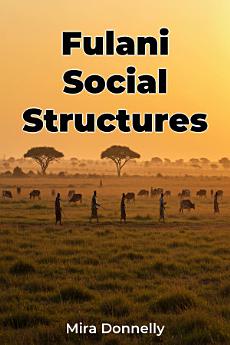Fulani Social Structures
May 2025 · Publifye AS
Ebook
67
Pages
family_home
Eligible
info
reportRatings and reviews aren’t verified Learn More
About this ebook
Fulani Social Structures delves into the fascinating ways the Fulani people, despite their widespread presence across West Africa, have maintained a distinct cultural and religious identity for centuries. The book argues that their success lies in a resilient social structure built upon adaptable leadership, a commitment to pastoral nomadism, and a shared dedication to Islamic scholarship. One intriguing aspect is how Fulani communities adapted their leadership models, ranging from clan-based systems to theocratic states, to suit different environments.
The book progresses by first introducing core concepts of Fulani social organization, such as lineage systems, before exploring how authority was maintained in various contexts. It then examines the economic and social implications of their mobile lifestyle and the unifying role of Islam in shaping their identity. By examining historical chronicles, oral traditions, and ethnographic studies, Fulani Social Structures offers a nuanced perspective on the interplay between social structures, mobility, and religious identity, making it a valuable resource for those interested in African history, Islamic studies, and social anthropology. This approach moves beyond simple narratives to provide a comprehensive analysis.
Rate this ebook
Tell us what you think.
Reading information
Smartphones and tablets
Install the Google Play Books app for Android and iPad/iPhone. It syncs automatically with your account and allows you to read online or offline wherever you are.
Laptops and computers
You can listen to audiobooks purchased on Google Play using your computer's web browser.
eReaders and other devices
To read on e-ink devices like Kobo eReaders, you'll need to download a file and transfer it to your device. Follow the detailed Help Center instructions to transfer the files to supported eReaders.






